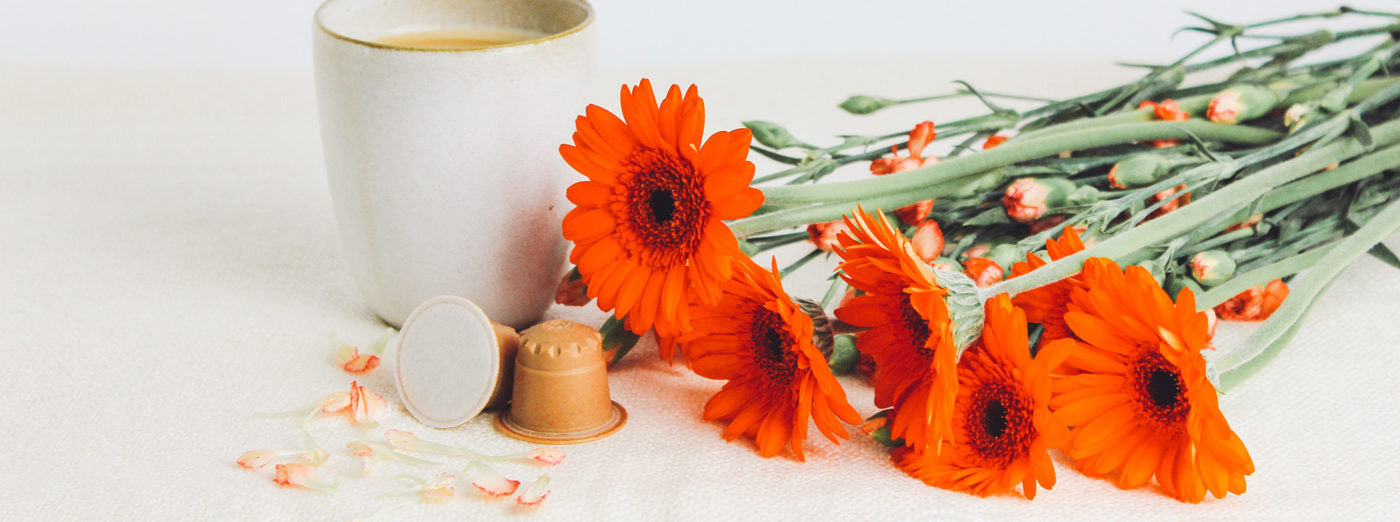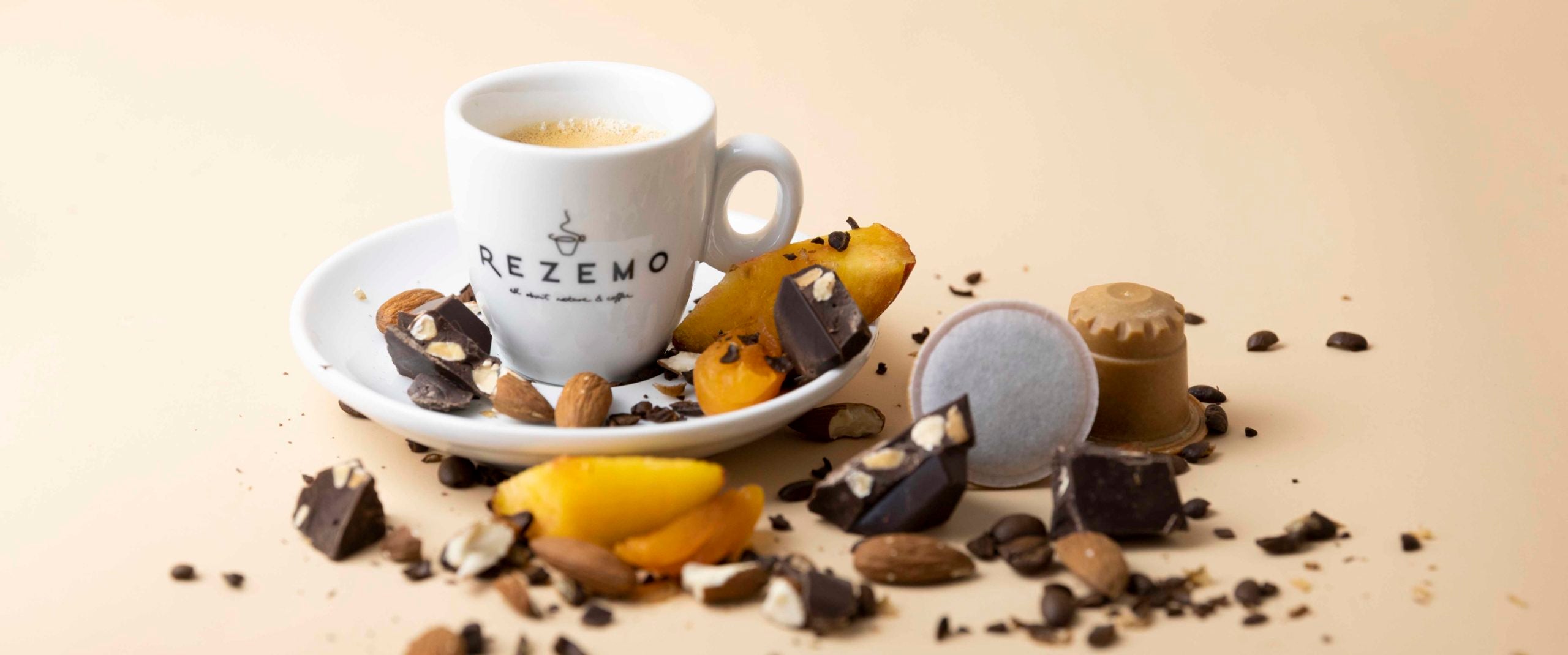
Tips for a plastic-free everyday life from the rezemo team
We all want to avoid plastic to protect our environment and oceans from pollution. Unfortunately, that's often easier said than done - or maybe not? We asked around the rezemo team and summarized our top tips and products for a plastic-free everyday life for you here.
We hope you enjoy reading and applying it!
1. Plastic-free shopping
Supermarket shelves are full of products in plastic packaging and sometimes it can be difficult to keep track and discover plastic-free alternatives. However, there are a few simple tricks to avoid plastic, even when it comes to food:
- Buy products in paper packaging or glass containers that you can either reuse or pass on via the deposit system.
- Use jute bags and cotton nets for loose products such as (preferably regional) vegetables and fruit.
- Shop at packaging-free stores and support local and independent businesses at the same time.
Our team member Olli relies on unpackaged stores and prefers to do his weekly shopping in a branch in downtown Stuttgart. Here you are responsible for the packaging of your food yourself, as you bring your own containers. There are now many locations of unpackaged stores, not just in Germany's big cities.
You can find out where your nearest unpackaged store is at this link:
Janina's tip: When buying clothes, look for natural materials such as cotton, viscose, Tencel or Lyocell and do not buy polyester, polyamide and elastane - otherwise microplastics end up in the wastewater!
2. Plastic-free drinking
There are now many alternatives to straws. The best option is of course not to use one at all, as Julian and Stefan say. But if you don't want to do without, there's no need to despair. There are straws made of glass, metal, bamboo or pasta. Yes, pasta!
Another tip is to take drinking containers with you when you're out and about, so you can avoid using disposable plastic bottles or coffee cups. "Once you get used to it, it's not as inconvenient as it might sound. In Germany, we're lucky to have very clean tap water - why should we still buy bottled water?" says Carolin.
Whether on the go or at home: Do you love coffee? Then you've come to the right place. Use our sustainable rezemo coffee capsules made of wood for your capsule machine. They are free of aluminum and fossil plastic and are therefore made from 100% renewable raw materials . You can find more information here:
rezemoIf you have forgotten your reusable coffee cup at home, you can use a deposit cup from Recup in many sales outlets across Germany. For a small deposit, you can have your coffee filled into the cup and then return it later to one of the sales outlets. You can find more information at:
Recup3. Eating plastic-free
Our team member Jonas loves being outdoors, for example hiking or cycling. Eating and drinking plastic-free while on the go is not always easy!
Nevertheless, you can think about it in advance and in most cases eat better and healthier by choosing homemade food from glass or metal containers. That way you won't end up going back to your trusted fast food chain or supermarket with plastic packaging.
Do you want your food to stay fresh, but without plastic wrap? Then try beeswax cloths. They are reusable and completely natural - but you should make sure that they are free of additional chemicals. They are available online and from many sustainable retailers. They are very easy to use, can be wiped off with a damp cloth if they get heavily soiled and can be easily refreshed with beeswax leaves after wear. You can find more information on caring for beeswax cloths here:
Pandoo4. Plastic-free morning routine
Janina is the "zero-waste expert" in our team. She gave us valuable tips on a plastic-free bathroom.
To start her plastic-free everyday life right after getting up, Janina likes to use toothpaste tablets instead of toothpaste. They are chewed like a kind of chewing gum and the resulting foam is then used to brush the teeth like normal toothpaste. In the shower, you can do without the countless plastic shampoo bottles and use solid shampoo instead. Or like your grandmother used to: reach for (shower) soap instead of shower gel! For hair removal, a bamboo razor is a good alternative to conventional plastic razors, which create plastic waste every time the blades are changed. These safety razors should be used for wet shaving and prevent cuts. A final morning routine tip is deodorant cream in a glass or can. It has the same effect as deodorant from spray cans, but is plastic-free.
Janina likes to get inspiration from the blogger Ms. Schubert:
Better Life Without Plastic - blog5. Plastic-free in the household
Carolin from the rezemo team also reported on her experiences. She uses sustainable cleaning products in her household and recommends making sure that the cleaners are made from renewable raw materials and are biodegradable. Twentyless offers cleaning products as concentrates in glass bottles that are simply diluted with water for use. This means that a full 20 plastic bottles can be replaced per cleaning concentrate.
TwentylessAnd when doing laundry, you can also avoid unnecessary plastic by using biodegradable detergents in paper packaging. Carolin particularly likes Everdrop's detergent because it can be specially tailored to the water hardness and is packaged in compostable paper bags that can then be used as garbage bags for organic waste.
Everdrop6. Plastic-free - do it yourself!
If you have the time and energy, the best solution to avoid packaging altogether is to make the product yourself. This could be your favorite soda, but also spreads or scrubs made from coffee grounds - if that doesn't sound exciting! And most of the time it's much easier than you think. Stay tuned for an upcoming blog post about homemade, plastic-free alternatives.
NOTE: This is a collection of ideas from our team. We do not guarantee the accuracy and completeness of the information provided or the information that linked third parties make available on their websites.



